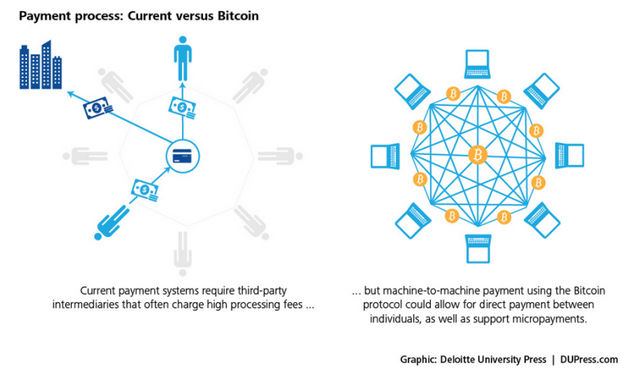BREAKING DOWN 'Blockchain'

The blockchain is seen as the main technological innovation of Bitcoin, since it stands as proof of all the transactions on the network. A block is the ‘current’ part of a blockchain which records some or all of the recent transactions, and once completed goes into the blockchain as permanent database. Each time a block gets completed, a new block is generated. There is a countless number of such blocks in the blockchain. So are the blocks randomly placed in a blockchain? No, they are linked to each other (like a chain) in proper linear, chronological order with every block containing a hash of the previous block.To use conventional banking as an analogy, the blockchain is like a full history of banking transactions. Bitcoin transactions are entered chronologically in a blockchain just the way bank transactions are. Blocks, meanwhile, are like individual bank statements.Based on the Bitcoin protocol, the blockchain database is shared by all nodes participating in a system. The full copy of the blockchain has records of every Bitcoin transaction ever executed. It can thus provide insight about facts like how much value belonged a particular address at any point in the past.The ever-growing size of the blockchain is considered by some to be a problem due to issues like storage and synchronization. On an average, every 10 minutes, a new block is appended to the block chain through mining.
- Read more: Blockchain Definition | Investopedia http://www.investopedia.com/terms/b/blockchain.asp#ixzz4EeiOzZNm
Follow us: Investopedia on Facebook